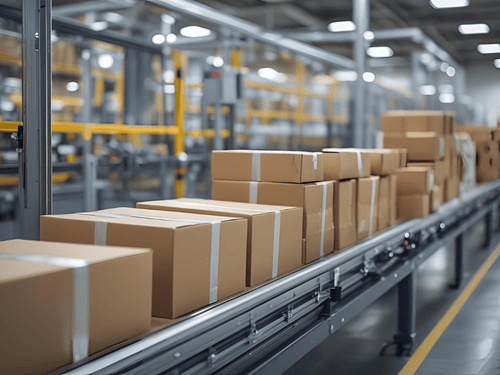Understanding Carrier SLAs
What Is a Carrier SLA?
A carrier SLA, or Service Level Agreement, is a formal contract that outlines the performance expectations between a business and its delivery provider. These agreements define critical benchmarks such as delivery speed timelines, success rates, and issue resolution times. SLAs give businesses the assurance that their fulfillment partners are aligned with operational standards.
Why SLAs Matter in Fulfillment
SLAs are the foundation for measuring carrier performance in real-time fulfillment operations. Without them, businesses struggle to hold carriers accountable when delays or service disruptions occur. A well-structured SLA directly influences the consistency and predictability of delivery speed.
Delivery Speed and SLA Metrics
How SLAs Impact Delivery Timelines

Carrier SLAs set the expectation for how quickly a package moves from the warehouse to the customer. The stricter the SLA, the more urgency the carrier places on meeting defined timeframes. Faster delivery speeds rely heavily on how precisely a carrier adheres to these service commitments.
The Role of SLA Compliance in Same-Day and Next-Day Shipping
Modern fulfillment demands rapid delivery, and SLA compliance ensures that these faster shipping models are even possible. Carriers who meet their SLAs consistently allow businesses to promise and deliver quick service. This is especially important for customer satisfaction in competitive ecommerce markets.
Reliability and Risk Reduction
Using SLAs to Minimize Delays and Errors
Service-level agreements are more than timelines—they also define how carriers respond to issues like missed pickups or failed deliveries. These standards reduce uncertainty and allow businesses to prepare for exceptions before they affect customer orders. SLAs help lower the risk of repeated fulfillment errors that erode customer trust.
Why Consistent SLA Performance Builds Trust
Every fulfilled order is a reflection of a company’s reliability, and much of that relies on carrier performance. When SLAs are met consistently, the brand benefits from reduced complaints and higher repeat purchase rates. Customers begin to associate on-time deliveries with overall service quality.
SLA Alignment with Fulfillment Systems
Integrating SLAs into OMS and WMS Platforms

Carrier SLAs need to align with the backend systems used in order management and warehouse management. Fulfillment platforms track these SLAs to ensure real-time operations stay within acceptable delivery windows. These integrations are key to proactive issue resolution and delivery forecasting.
How Vareya Ensures SLA Adherence Across Carriers
Vareya uses a strategic carrier approach that prioritizes partners with a proven ability to meet high SLA standards. By evaluating carrier data against delivery targets, Vareya ensures that speed and reliability stay within acceptable thresholds. Their system-driven fulfillment model reduces manual oversight while maintaining strong SLA compliance.
Evaluating Carrier SLA Performance
What to Monitor in an SLA Review
Businesses should monitor factors such as on-time delivery percentage, issue resolution speed, and tracking accuracy when reviewing a carrier SLA. These indicators reveal whether a carrier is performing to agreed standards or falling short. Regular reviews allow for early intervention before service problems scale.
Making Adjustments Based on SLA Data
When SLA data shows dips in performance, businesses need to either optimize current relationships or explore new carrier options. This data-driven decision-making improves operational agility and delivery outcomes. Timely changes prevent SLA breaches from affecting overall fulfillment success.
Key Takeaways
Carrier SLAs, or Service Level Agreements, are the promises made between your business and your shipping providers. These agreements set the standards for how quickly and accurately your packages should be delivered. They’re basically the rules of the game that help ensure your customers get what they ordered on time, in one piece, and without any confusion.
When these SLAs are well thought out and closely managed, they do more than just keep things running, they actually boost customer happiness. Late shipments or incorrect orders can cause frustration and lost trust. But with strong SLAs in place, delays are reduced, mistakes are caught early, and your team knows exactly what to expect from each carrier.
Working with the right fulfillment partner, like Vareya, takes things to another level. They help you choose carriers that align with your goals and make sure your SLAs are not just words on paper, but part of a process that scales smoothly as your business grows. It’s about building a reliable, flexible system that puts your customers first and grows with your success.

